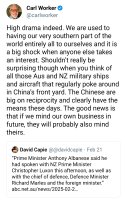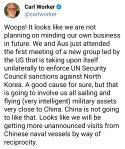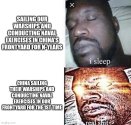plawolf
Lieutenant General
A non-white Bond would be ok. An essential characteristic of James Bond is that he is British, and the story of the British empire is the story of occupying foreign lands and often incorporating elements of the peoples they encountered into the empire. Persons born of those circumstances often have a complex relationship with the mythology of the British empire and the modern United Kingdom and that offers some interesting storytelling possibilities. A bi James Bond would be much trickier to pull off but not intrinsically unworkable. A female 007 should be unthinkable, because 007's masculinity is, like his Britishness, an essential characteristic of the franchise. You can no more make 007 female than you can make him a plumber.
Sweet Baby Inc approved studio exec: I hear you. And in recognition of your good points, Bond will now be a trans Native American, who is a plumber. That last part is non-negotiable.






